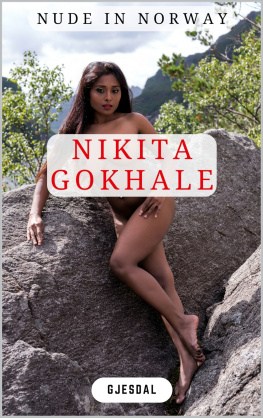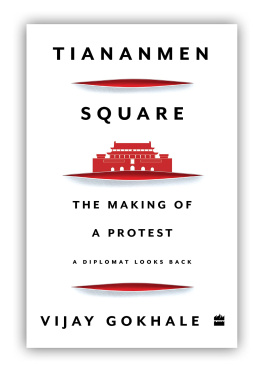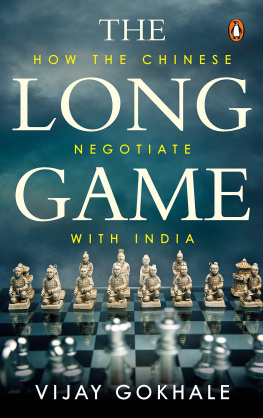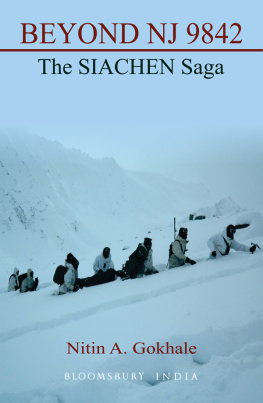Shanta Gokhale was born in Dahanu and brought up in Mumbai. She has worked as a lecturer in English at Elphinstone College and H.R. College of Commerce, as a sub-editor with Femina , as a P.R. Executive with Glaxo Laboratories and as arts editor with the Times of India . Gokhale has written two novels in Marathi, Rita Welinkar and Tya Varshi . Both won the Maharashtra State Award for the best novel of the year and have been translated by her into English. She has translated Smritichitre: The Memoirs of a Spirited Wife by Lakshmibai Tilak and the novel Kautik on Embers ( Dhag ) by Uddhav J. Shelke. Apart from these she has also translated plays by Vijay Tendulkar, Mahesh Elkunchwar, Satish Alekar, G.P. Deshpande, Premanand Gajvi and Makarand Sathe. She has also translated from English into Marathi the play Mister Behram by Gieve Patel and the novel Em and the Big Hoom by Jerry Pinto. She is the author of Playwright at the Centre: Marathi Drama from 1843 to the Present; and the editor of The Scenes We Made: An Oral History of Experimental Theatre in Mumbai, Satyadev Dubey: A Fifty-Year Journey Through Theatre and The Theatre of Veenapani Chawla: Theory, Practice and Performance . She has been a culture columnist with The Independent , The Sunday Times of India , Mid-Day and Mumbai Mirror .
In 2016, she received the Sangeet Natak Akademi Award for her overall contribution to the performing arts.
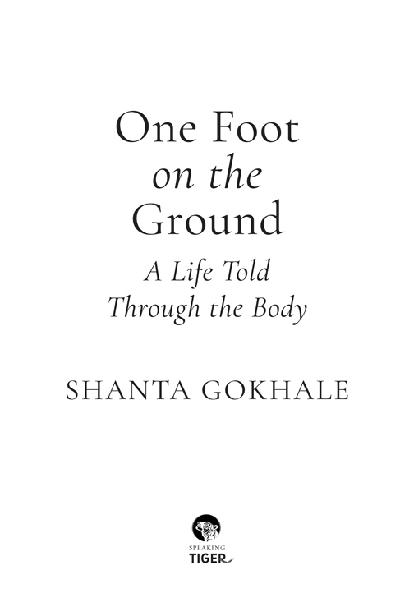
For Nirmal
and
In memory of our parents
Contents
0. Why?
In Angelas Ashes: A Memoir of a Childhood , Frank McCourt says in the second paragraph of the first chapter, It was of course a miserable childhood: the happy childhood is hardly worth your while. Leo Tolstoy gets there even before him. He dismisses happy families in the first line of Anna Karenina . Happy families are all alike, he writes. Every unhappy family is unhappy in its own way. The line has lived on in peoples memories as one of the most striking first lines in a novel. Altogether, there seems to be no getting away from the fact that happy people are uninteresting, possibly even stupid. Despite which I must confess that my childhood was not just happy; it was extraordinarily happy. I am therefore a subject that makes neither a worthwhile memoir nor a great novel. So why am I writing this?
However peremptorily Tolstoy may dismiss the idea, the fact is happy families are not alike at all. One happy story is very different from another. No outsider can decide which is happy and which is not. A woman of my acquaintance has chosen to remain single. She is one of the happiest people I know, hard-working, generous, full of beans and complete in herself. Yet her neighbours see her as someone who has been left on the shelf and is putting on a brave face. When I was working as a sub-editor in the womens magazine, Femina , a gentleman came to see me for advice on what career his daughter should choose. Why he came to me is a mystery. Perhaps he was under the impression that a magazine that dished out various kinds of advice to readers in its columns, was likely to be staffed by experts on all aspects of life. A brood of agony aunts in fact going, Id like to assure you first that your problem is not uncommon In the course of describing his daughters qualifications, the gentleman mentioned a quality of her personality that he was proud of and which he thought would impress me too. She is so modest that she has never raised her eyes to look at a man, he said. Poor unhappy creature, I thought. But who was I to think that? Perhaps her happiness lay in making her father happy. I asked around the office for reliable career counsellors phone numbers and handed him the list. It struck me then that twenty years before this girl was even born, we sisters, Nirmal and I, had been going around town with eyes boldly raised, looking at everything there was to see, including men if they came into sight. Ours was an unusual kind of happiness in a culture where women who looked only at the road beneath their feet when they walked were most valued. In the great Indian battle between tradition and modernity that was playing out then, modernity had the upper hand as an aspirational value. Today the battle has continued with tradition, or whats constructed as tradition, inching ahead. When tradition rules, womens lives are more radically affected than mens. Happily for Nirmal and me, our parents had positioned themselves firmly on the side of modernity. Which meant we respected all human beings and rejected every barrier to equality, whether of religion, caste or gender. We were also brought up to understand and respect our bodies as much as our minds. We had to eat a balanced diet and play games. Even during examinations, Father would order us out in the evening. No sitting at home cramming. Fresh air, fresh body, fresh mind.
Last year I came upon something interesting in Siddhartha Mukherjees The Gene . It appears Queen Victoria, once Empress of half the world, was a carrier of the gene that caused Haemophilia B. Women were carriers of the gene and male descendants the victims. Victoria passed the gene on to her daughter Alice, Alice in turn to Alexandra the tsarina of Russia, and she to her son Alexei who became a victim of haemophilia. The sickly child was just shy of fourteen when the entire family was assassinated by the Bolsheviks. A gene that had crossed continents was fascinating enough. But what held my attention even more was the irony, as the author put it, of the disjunction between the princes all-too-human genetic condition and his all-too-exalted political inheritance. Our all-too-human condition is the gift of the body we inherit. Hamlet realizes that the court jester Yorick and the great emperors Alexander and Caesar are all undifferentiated dust. However high the flights of the mind or of ambition, it is ultimately the body that allows or disallows them. Athletes have a proper sense of this. After his eighth Wimbledon win, Roger Federer said, Again and again I am grateful my body has cooperated. He was thirty-six, which is supposedly ancient for tennis. It is vital then to accept the body in all its beauty, mystery and power; to know that the images we build of ourselves might one day be rudely shattered by its exigencies.
Post cancer surgery, my mother was being fed through a tube. Two things mortified her deeply. One, that the doctor kept noting whether or not she was passing gas. This was a bodily function that she, like everybody else in polite society, was used to pretending did not happen. To have it so blatantly brought to public noticethe public being the group of students who always accompanied the doctorwas an unforgiveable breach of social behaviour. Two, she was taken in a wheelchair for tests with the feeding tube still attached. Why dont they remove this nose ornament when they take me out, she fumed. It hurt her sense of personal dignity to leave her room with that ludicrous object hanging from her nose. Mother believed in mind over matter. The body does what you train it to do. The body cannot be permitted independent decision-making. Nor was it to be mollycoddled. When she napped in the afternoon, she called it resting her back. She never admitted even to herself that a human body that was up from the crack of dawn, stretching itself to the maximum to look after home and family while simultaneously trying to fulfil personal ambitions, needed a short rest in the middle of the day. Similarly, she never fully accepted the fact that she had cancer. All those who ask Why me, suffer from the delusion that they are endowed with specially blessed bodies unlike other peoples. Tolstoy writes in The Death of Ivan Ilyich : the mere death of a near acquaintance aroused, as usual, in all who heard of it, the complacent feeling that it is he who is dead and not I.






